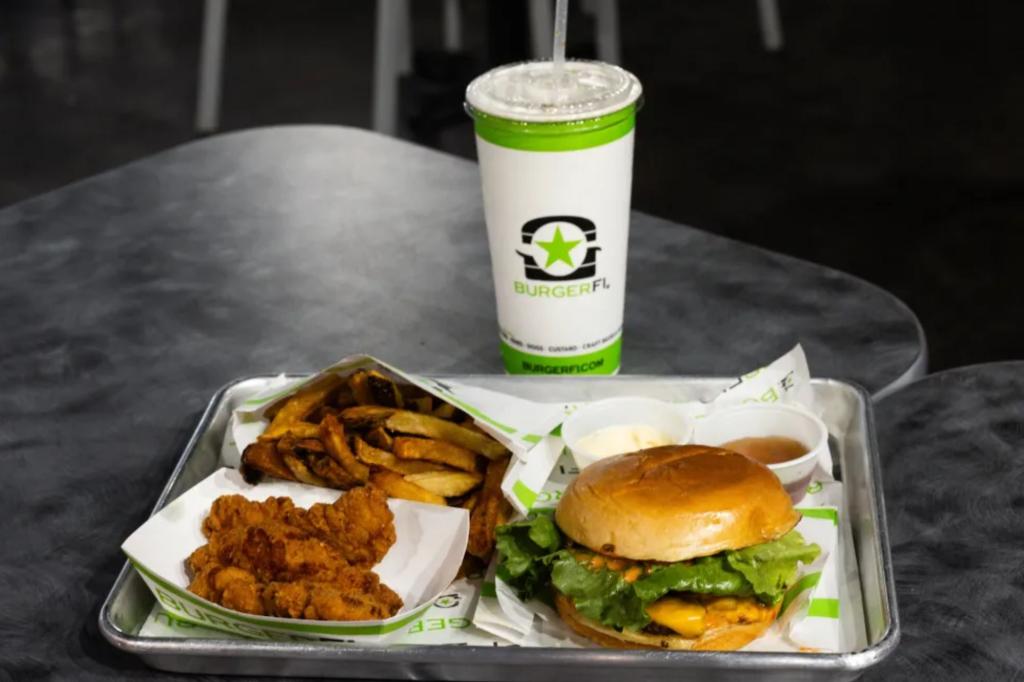The restaurant chain BurgerFi International has filed for Chapter 11 bankruptcy protection to preserve the value of its BurgerFi and Anthony’s Coal Fired Pizza & Wings brands. The bankruptcy proceedings only include its corporate-owned BurgerFi and Anthony’s Coal Fired Pizza & Wings restaurants, of which there are 17 and 50, respectively. The petition was filed in the U.S. Bankruptcy Court for the District of Delaware due to a drastic decline in post-pandemic consumer spending, sustained inflation, and increasing food and labor costs. Despite launching an extensive turnaround effort last year, legacy challenges have led to the need for the bankruptcy filing.
CEO Carl Bachmann mentioned that despite early positive indicators of the turnaround plan initiated less than a year ago, legacy challenges necessitated the recent filing for Chapter 11 bankruptcy. BurgerFi estimated its assets to be in the range of $50-$100 million, while estimated liabilities were between $100-$500 million. The company is confident that the bankruptcy process will allow them to protect and grow their brands, continue the operational turnaround that began less than 12 months ago, and secure additional capital. Franchisees operate 76 BurgerFi restaurants and one Anthony’s location, and customers can expect both corporate and franchised restaurants to remain open as usual.
Other restaurant chains that have entered Chapter 11 bankruptcy this year include Roti, Buca di Beppo, Rubio’s Coastal Grill, Red Lobster, and Tijuana Flats. Red Lobster recently received court approval to exit bankruptcy. According to Jonathan Carson, co-CEO of bankruptcy services and technology firm Stretto, a total of 17 operating companies and large franchisees in the restaurant industry have filed for Chapter 11 so far this year. The industry has been significantly impacted by the COVID-19 pandemic, leading to financial struggles for many businesses in the food and dining sector.
The rise in restaurant chains filing for bankruptcy this year is largely attributed to the ongoing challenges facing the industry, including decreased consumer spending, inflation, and rising food and labor costs. Despite efforts to improve business operations and launch turnaround plans, many chains have been unable to overcome these obstacles. For BurgerFi International, legacy challenges and the need for additional capital to support growth and brand preservation led to the decision to file for Chapter 11 bankruptcy protection. Franchisees and customers can expect restaurants to continue operating as usual during this process.
Bankruptcy filings by restaurant chains are not unique to BurgerFi International, as several other well-known chains have also sought Chapter 11 protection this year. Roti, Buca di Beppo, Rubio’s Coastal Grill, Red Lobster, and Tijuana Flats are among the companies that have faced financial challenges and entered bankruptcy proceedings. While the industry has shown some signs of recovery, the impact of the pandemic continues to be felt, driving companies to seek legal protection and financial restructuring. Despite these challenges, companies like BurgerFi International remain optimistic about their ability to protect and grow their brands through the bankruptcy process and secure the resources needed for operational turnaround and future growth.


